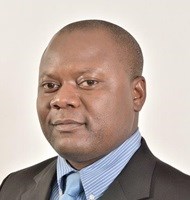As the 2014 FIFA World Cup fever wears off, Brazil will start evaluating the impact of the tournament on its economy. Undoubtedly, one of the key economic pillars that it will pay attention to is the tourism sector.

Wiza Nyondo
According to Wiza Nyondo, head of tourism of FNB Business: "Brazil's tourism sector is one of the industries that will benefit from hosting a global event like the FIFA World Cup. However, the main challenge for the country will be to sustain tourism growth post the World Cup - this is the same challenge that South Africa faced after hosting the 2010 tournament."
Post the 2010 World Cup, South Africa's main focus shifted towards maintaining reasonable levels of growth in the tourism sector. However, the hospitality sector struggled with low occupancies due to increased room inventory and low demand in the market. Since then, the industry has proved resilient and remains one of the best performing sectors despite dipping in the second quarter of 2014. After 2010, the SA tourism industry continued to invest in capex and human resources development in spite of domestic economic challenges and global headwinds.
South Africa went through the process of correcting the room inventory problem over a number of years. The national government, SA Tourism and the trade continued to be creative and market the country to our traditional source markets, and poured resources in newer markets in the BRIC bloc and regional African markets. This paid off, which has led the country to achieve sustainable growth. In addition, increased travel activities, specials and discount packages domestically also helped to fill the gap of low arrivals from some inbound tourism markets.
The building blocks are already there
"As a long-haul destination too, it remains to be seen if Brazil will be able to take some of our best practices from our experiences and be able to do the same. The building blocks for Brazil are already there because they have invested heavily in road infrastructure and improved capacity in the hospitality sector," added Nyondo.
In various studies commissioned by the Brazilian government, it's estimated that the tournament will add anywhere from USD70 to USD110 billion to Brazil's economy. It was reported that host cities were expecting an estimated 3.7 million tourists - both domestic and international.
"The task of sustaining tourism growth remains a difficult one due to, inter alia, increased ever-changing lifestyles of discerning tourists, aggressive marketing by other competitor destinations, the mixed global economic recovery and the proverbial lull that follows mega events. But focused and aggressive marketing efforts and, critically, sustained collaboration by the relevant industry stakeholders is necessary to cushion adverse impact. Overall, the market outlook remains positive for both South Africa and Brazil as these are popular tourist destinations," concluded Nyondo.









































